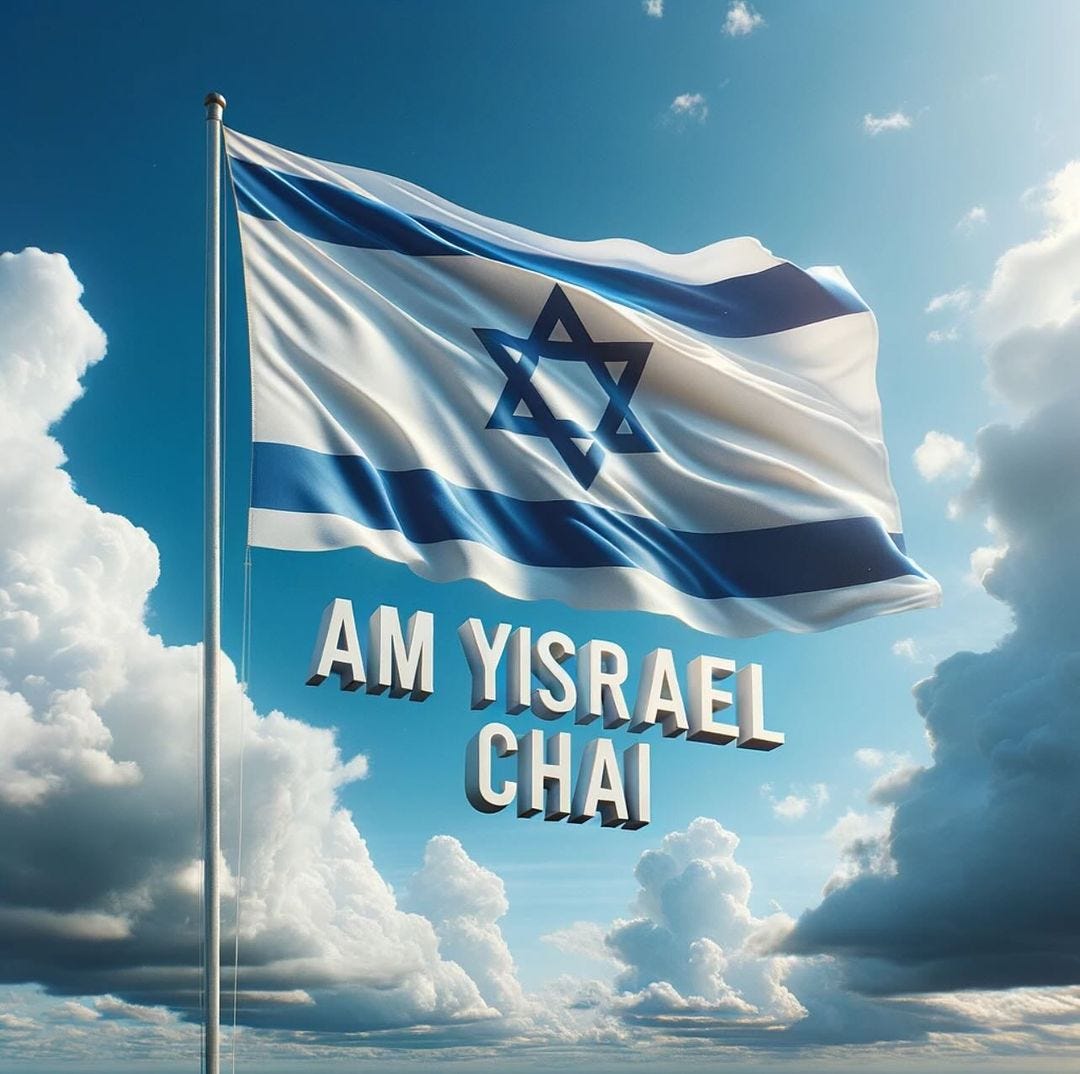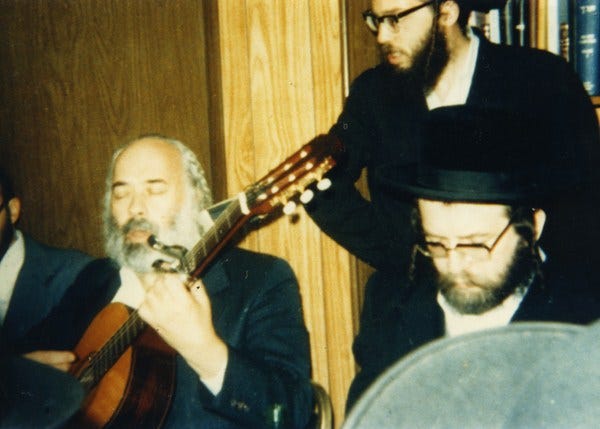Israel's Most Popular Wartime Saying: The Backstory
“Am Yisrael Chai” (Hebrew for “The People of Israel Live”) has become second only to Israel’s national anthem as the premier declaration of and for the Jewish People.
Please consider supporting our mission to help everyone better understand and become smarter about the Jewish world. A gift of any amount helps keep our platform free of advertising and accessible to all.
This is a guest essay written by Gary Rosenblatt.
You can also listen to the podcast version of this essay on Apple Podcasts, Google Podcasts, and Spotify.
Share this essay using this link: https://www.futureofjewish.com/p/israels-most-popular-wartime-saying
Like many of you, I have been hearing the stirring song, “Am Yisrael Chai” (Hebrew for “The People of Israel Live”), sung with great passion — around the country in Israel, and in communities around the world — since the outbreak of the Israel-Hamas war.
It has become second only to “Hatikvah” (Israel’s national anthem, meaning “The Hope” in Hebrew) as the premier declaration of and for the Jewish People.
Some believe that “Am Yisrael Chai” dates back centuries, but in fact it was written and first performed in the mid-1960s. It was composed by Shlomo Carlebach (1925-1994), a popular ultra-Orthodox “singing rabbi,” at the request of Jacob Birnbaum, the founder of the grassroots Student Struggle for Soviet Jewry, who was seeking an anthem for the fledgling Soviet Jewry movement in the spring of 1965.
Birnbaum and Carlebach knew each other, as did their grandfathers. According to Birnbaum, his grandfather, Dr. Nathan Birnbaum, and Carlebach’s grandfather, Rabbi Arthur Cohn, met in 1897 at the First Zionist Congress, held in Basel, Switzerland. (Birnbaum’s grandfather was elected to be the first Zionist Secretary-General.)
Describing the song’s origin story in a 2003 letter found in the files of the Yeshiva University Library, Birnbaum (1926-2014) wrote that he wanted to “generate movement songs” that could inspire young people and other activists at rallies for the cause.
Noting Carlebach’s popularity at the time for his soulful melodies put to Hebrew prayers — still favored today in many synagogues around the world — Birnbaum sought to reach out to the ultra-Orthodox troubadour, hoping for a catchy composition in time for a planned major rally.
It was set for Sunday, April 4th, 1965, and was to be held in front of the Soviet United Nations Mission on East 67th Street in New York. In dramatic fashion, seven people would blow seven shofars, “Jericho style,” and the crowd would march to the UN’s headquarters.
“But Shlomo was constantly on the move and hard to pin down,” Birnbaum wrote, so he asked Carlebach’s mother, Rebbetzin Paula Carlebach, to forward his request to her son for a song that would include the words “Am Yisrael Chai.”
“The request began to resonate with him (Carlebach) when he flew to Soviet-dominated Czechoslovakia,” Birnbaum recalled. “Later he told me that he had washed my letter, typed on ‘Student Struggle’ stationery, down the airplane toilet in some trepidation,” fearful of being arrested.
It was during that trip that Carlebach wrote and first performed “Am Yisrael Chai” before a group of youngsters in Prague, Birnbaum later learned. At the time, though, he was still pressing Carlebach’s mother to make sure her son had a composition in time for the April 4th rally in New York. Late on Friday afternoon, April 2nd, Birnbaum recalled: “My phone rang and Shlomo’s exhausted voice said, ‘Yankele, I’ve got it for you!”
The impact of the song on the crowd was immediate.
“Shlomo was inspired,” Birnbaum wrote, noting that “even the usually kvetchy New York Times correspondent basked in the pervasive joyful spirit of the moment.”
Besides the three words, “Am Yisrael Chai,” Carlebach had added three more words to the song, based on the Biblical story (Genesis, 45:3) of Joseph revealing his identity to his brothers. He immediately asks about the welfare of their father, Jacob, whom Joseph has not seen in many years: “ha-od avi chai”? (“Is my father still alive?”)
Carlebach transformed the question into an exclamatory statement of affirmation: “Od aveenu chai!” (“Our father is still alive!”)
Birnbaum interpreted the phrasing to signify that a rebirth of Jewish life, including music, was beginning to take place in our post-Holocaust Jewish world.
Glenn Richter, who served as the tireless national coordinator of Student Struggle for Soviet Jewry for 27 years, recalled Carlebach as he taught the leadership “Am Yisrael Chai” before the rally — “and then belting it out.”
He said the song “swiftly made its way around the Jewish world, including into the USSR.” At this point, he added, the song “has become the second Jewish national anthem.”
Another veteran leader of the Soviet Jewry movement, Zeesy Schnur, who spent 22 years working for the cause, 12 of those years as executive director of the Greater New York Conference on Soviet Jewry, noted that “Am Yisrael Chai” became “the centerpiece” of the annual Solidarity Rally in New York from 1972 to 1991.
It has continued over the decades to excite and inspire audiences gathered for Jewish causes — sad or celebratory — reminding us of what unites us as a living Jewish People. In recent days, “Am Yisrael Chai” is sung in defiance of those who would attempt to defeat us.
May it remain a rallying cry of Jewish unity for evermore.





My friend was at a concert of Shlomo’s where hundreds of voices were singing at full volume. When she asked him later how he felt when he saw the electricity his song created. He said it was very nice, but nothing compared to descending into a basement in Soviet Russia where five little boys were singing the same song.
Very interesting, thank you for that. Indeed, I thought the song was much older. Nice to learn something new.